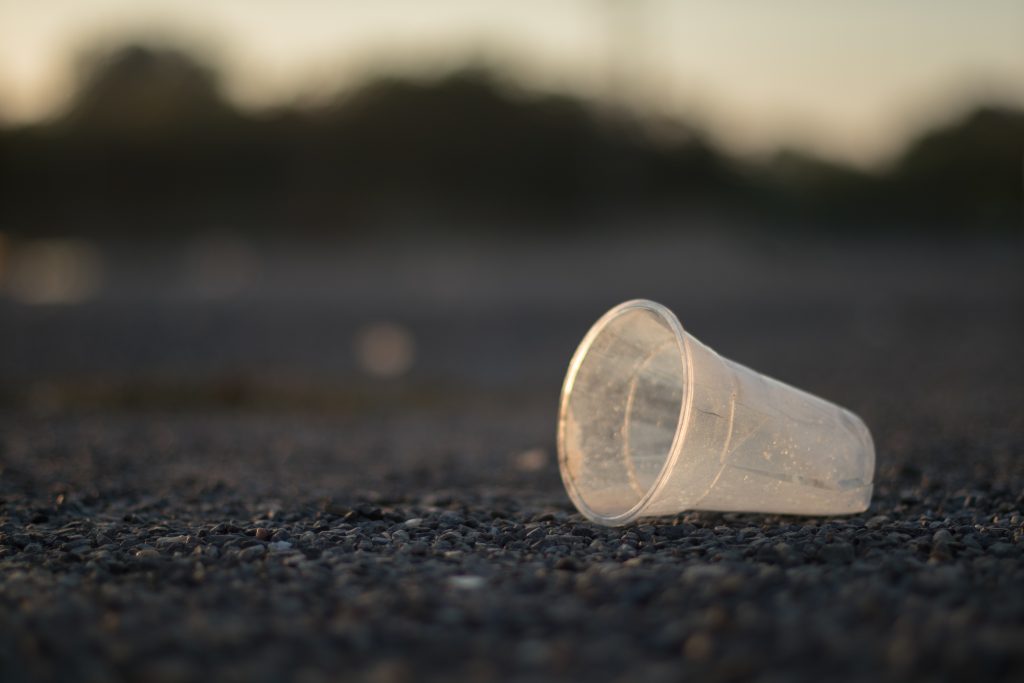Coronavirus crisis likely to exacerbate Israel’s plastic problem
April 8, 2020Partial lockdown raises concerns over potential increase in demand for single-use items due to food delivery services and protective masks; but while plastics may temporarily be on rise, outbreak could have positive impact on country's green credentials

In light of the recent coronavirus crisis, Israel has ordered a lockdown of the entire country, allowing individuals to leave their homes only for necessary activities. These orders have caused a number of businesses to close and have forced the majority of the population to mostly stay indoors.
However, many restaurants have opted to remain open, offering delivery options to willing customers. As Israelis stay indoors under these self-quarantine measures, there has been an increased demand for food delivery services.
Israel’s plastic problem is no hidden secret. The Israel Union for Environmental Defense has reported that Israelis produce twice as much plastic waste as the global average per capita. Despite grassroots efforts, Israel’s plastic consumption has been on the rise, with sales of single-use tableware increasing by 51% from 2014 to 2018.
As is well known, food delivery options tend to use significant amounts of single-use plastics in their packaging and dishware. Consider a typical takeaway delivery from one of the many restaurants found on Wolt. Usually, the customer receives a plastic bag inside of which is a paper bag with the contents of the meal. The meal and condiments are separately packaged in single-use plastic containers. Additionally, a few paper napkins are provided along with plastic cutlery, which itself is wrapped in plastic.
Dr. Hagit Ulanovsky, an environmental health risk management expert, predicts that the corona crisis will increase the demand for single-use plastics. “In general, people are afraid of microbes and end up using more single-use plastics and sanitizing wipes than necessary when dealing with food. Now with corona, people are using even more than before just to be on the safe side.”

Ulanovsky pointed out that one of the FAQs on the Ministry of Health website is if coronavirus can spread through municipal tap water. As a result of this unfounded concern, many individuals and families have stocked up on plastic water bottles.
Another factor that could be impacting overall plastic consumption is the widespread use of disposable surgical masks worn by shopkeepers, workers, and vulnerable individuals protecting themselves from the virus when leaving their homes. These surgical masks are typically made from fiberglass paper and polypropylene. Both of these materials are thermoplastics and take centuries to degrade.
It will take at least a few more weeks to have enough data to fully understand the changes in single-use plastic demand caused by the virus. “While people might be ordering more food delivery to their homes, all these high tech workers who would be consuming takeaway on a daily basis at their offices might be cooking from home now – we don’t have enough information at this stage,” she adds.
Ulanovsky mentions how the corona crisis will push back the advances made in public awareness of plastic pollution. “Here in Israel, we’ve worked so hard to decrease the number of single-use plastics, but this corona crisis is taking us away from our goal. It will take months or even years to start moving in the right direction again,” she concludes.
Despite the anticipated rise in single-use plastic consumption, the corona crisis is expected to decrease global greenhouse gas emissions temporarily, while nations impose lockdown policies. With most individuals staying and working from home, there is less of a demand for energy powering office buildings as well as less road traffic.
According to estimates, by 2030, Israelis will spend between 850 million – 1.1 billion hours per year on the roadway, resulting in losses estimated at $7.2-8.95 Billion USD in GDP per year caused by loss of working hours, fuel consumption, air pollution, and road repair and maintenance. Working from home under the new lockdown measures may have the potential to bring structural changes to our work culture in the future, which may prove to have a positive impact on the environment.
This ZAVIT article was also published in Ynetnews on 04/04/2020.







